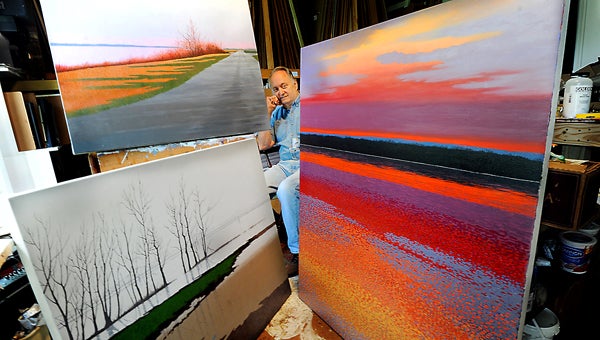Why are we voting like it’s 1845?
Published 12:01 am Friday, November 2, 2012
If you live just east of the Mississippi River, you might as well be living in the horse-drawn carriage days of the 1840s.
For a town that takes pride in its historic preservation, honoring the tradition and legacy of our forefathers may not be such a bad thing. But does it have to extend to voting?
Does it make sense that we still vote on a day that makes more sense to a 19th century buggy-driving farmer than it does to a 21st century smartphone-carrying suburbanite?
Yet here we are in 2012 voting exactly the way people did before the Civil War, when the country was made up of just 22 states.
You might think that somewhere in the Constitution or the Declaration of Independence there is a section that dictates when we cast our votes for our national leader. Other than stipulating that our president and vice president be elected every four years, the Constitution gives Congress the power to choose the exact date,
In 1845, Congress chose the Tuesday after the first Monday in November as our nation’s election day.
Why Tuesday?
In a time when many voters lived a day-long buggy ride from the ballot box, leaders had to set an election day that didn’t interfere with the Biblical Sabbath or with market day, which was on Wednesday in most towns. Tuesday ended up being that day.
Much has changed in that time, including a steady drop in the percentage of citizens who vote each November.
Currently the United States ranks 138 among the world’s 172 most populous countries in voter turnout. Somalia, Aruba, Italy, Iceland all rank far above the United States in the percentage of the voting-age population that gets out and votes.
Between 1945 and 2001, 47.7 percent of those eligible to vote in the United States cast ballots.
So what does Tuesday have to do with this ever-increasing problem? It turns out that of all the reasons people give for not voting “being too busy” or “not getting time off” were the top reasons given for not voting.
According to the 2010 Census, 27 percent of non-voters gave similar answers.
If you live in Louisiana, you already live in a state that offers an alternative. Last week Louisianans went to the polls to vote early. They joined more than 12.5 million people, including President Obama, who voted at a time that fit with their hectic lives and schedules. That is a little more than 9 percent of the votes that officials expect to be cast this Tuesday.
Voters in Mississippi and 14 other states aren’t so lucky. It’s Tuesday or bust for them. If Hurricane Sandy had waited a week to create havoc in New York, what would have happened in that state, which wouldn’t have allowed any voting other than on Nov. 6?
Isn’t it time that our elected leaders consider another option? Hasn’t the world changed enough in 167 years to consider that Saturday — or some other day of the week — might be a better day to vote than Tuesday? And if Tuesday is so important than maybe we should consider making Election Day a national holiday every four years.
South Carolina and Louisiana have higher voter participation then the whole nation when they vote on the weekend. So do countries that vote on the weekend.
Recently, much has been made about voter ID and how it will prevent abuses in our electoral system.
Such abuses affect a very small number of votes.
Maybe we should consider bigger problems with our election system.
What about Tuesday?
Ben Hillyer is the design editor of The Natchez Democrat. He can be reached at 601-445-3540 or by e-mail at ben.hillyer@natchezdemocrat.com.



